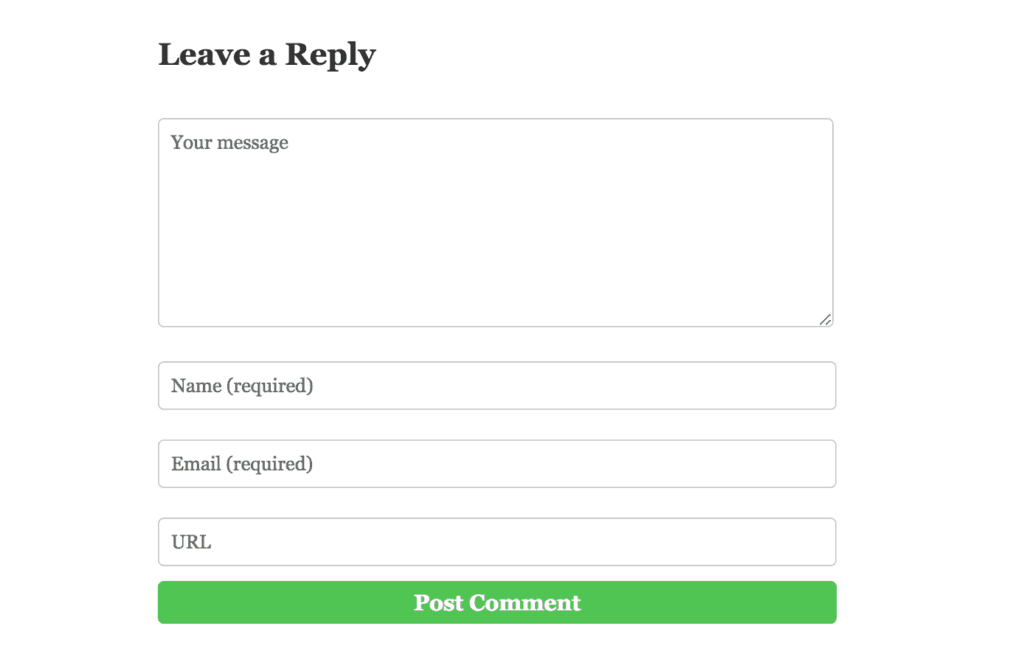

When there are over 70% of consumers who place peer recommendations and reviews about professionally written content, and 86% of millennials say that user-generated content is generally an accurate quality indicator of a brand or service, you know it’s time to invest in a good comment system for your WordPress site.
Following this insight implies that you have to assign a fraction of your time, or of a different person’s to be in charge of managing and moderating the reactions of your community that uses the comment system. In the upcoming paragraphs, we’ll explore why user-generated content is a good idea, and which is the best comment system for your website. Let’s dig in!
#User-Generated Content (UGC)
User-generated content has faced a massive growth generated by the development of social media platforms and blogs, but also by the behavior of the users. It can be defined as any type of content that is created by consumers, or other unpaid contributors. Here we can mention blog posts, tweets, videos, comments and any other type of organic interaction with your content.
Even though UGC can be seen as a marketing buzzword, it’s actually the element that’s driving the consumer market. People are no longer impressed by traditional marketing campaigns; now they strive for genuine, personal stories and experiences that are told from the perspective of people like them. The numbers back this, as of 47% of millennials that trust UGC, only 25% of them trust the content that’s created by brands.
This type of content has the potential to develop and gather new communities, with fresh ideas of what a service or a product can bring to the table. It can lead a brand to unknown paths that can prove more profitable than a traditional marketing campaign. We’re not dissing traditional marketing campaigns; we are just recommending you look for different perspectives by encouraging user-generated content.
#Reshaping WordPress sites through UGC
Seeing that WordPress powers 30% of the websites on the web, it’s no wonder that it’s the perfect pitstop for user-generated content. Combining the magnitude of WordPress usage with the innovative and unique UGC can help the business grow and transform.
Here we can talk about forums, guest posts, testimonials, forms, and most importantly, comment systems. For all these types of UGC, you can find a plugin to best fit your website, and make it possible for users and viewers to expose their point of view.
#Which are the features of a good comment system?
We all have in mind what the perfect gift is for each and every one — what it is, how it’s wrapped, the color of the ribbon, and the one who it is from. This exercise of imagination works with comment systems, too. We want it to do everything we imagine we want and also impress us a bit with new features.
All in all, the perfect comment system should, at least, have a few attributes that are common to better describe their scope:
- Moderation: in this case, we talk about being able to control what viewers are writing about. Note that this is not for speech restriction, but to filter profanity on your website.
- Requires login: before making the jump into choosing the best comment system, you need to see if it requires having an account to post a comment. There are cases when a session account is made, which offers the flexibility of occasional posting.
- Notifications: it’s important for viewers that are engaged in a conversion to receive a notification in case they are mentioned in a comment or receive a reply.
- Analytics: it’s important to know how a certain subject or page has behaved in terms of viewer engagement, to better shape content in the future.
- GDPR compliance: you need to know if the comment system plugin checks all the GDPR boxes, in order that your viewers’ data is safe.
- Usability: is it easy to use and nice to look at? Does it feel like you already know how to use it? Then go for it.
#The best comment system for your WordPress site
We made a bit of research into the land of comment plugins or types of comment systems that our customers are using. Moreover, we’ve summarized our findings below, with a cons and pros list.
#1. Disqus
In case you haven’t been living under a rock, then you must have heard about Disqus. It’s one of the most popular comment systems, boasting 1 million WordPress plugins installs, while 47% of our customers are using it, too.
Pros
- Anti-spam filtering
- Monetization options
- Good text formatting: bold, link, italics, and quote, implemented by using HTML tags or code syntax highlighting
- Over time, it starts recognizing what you consider spam and deletes those type of comments automatically
- Comments are indexed by search engines.
Cons
- You need an account or use a social media profile to post comments
Some big names like Wired and Dezeen are using this plugin, but is it the best fit for you, too? Only in case you have a generous amount of traffic and engaged users that are yearning for real-time discussions, that are social media users, or already have a Disqus account, the answer would be yes.

#2. The built-in WordPress Comment System
The traditional comment system, which is the native WordPress comment system, is used by 35% of our users on their websites.
Pros
- Easy to use
- Comments are indexed by search engines
- Anonymous posting
- Fast loading comment system
- Easy to authenticate.
Cons
- Spamming
- It doesn’t have social media integrations
- In case you want more functionalities, you’ll need to install additional plugins.
In case of high traffic, using this comment system requires the input of a community manager that will filter spams. Other than that, if you want a simple comment system for your website, then this might be your best bet.

#3. Facebook Comments
Now heading towards one of the most talked-about platforms and their comment system. Putting controversy aside, almost everyone has a Facebook account, and this makes it easy to post comments. On our platform, a bit over 12% of our customers are using it on their website.
Pros
- Automatic spam filters
- Threaded comments, with options like reply and like
- Analytics.
Cons
- Google Analytics under-reports Facebook impressions
- You need an account to post a comment
- You can mention only your friends in comments.
All in all, this comment system is best suited for websites that have a strong Facebook presence and following.

#4. Spot.IM
Spot.IM is the new kid on the block. Well, sort of. It was founded in 2012, and since then has tried to bring new ideas to the comment table. At the end of 2017, it raised $25 million in Series C funding. Its founder says that his dream is to build assertive communities, something like a social network.
Pros
- You can post without registering, being given random and anonymous credentials
- Social media login
- Threaded comments, with options like reply and like
- Analytics
- It uses machine learning to remove spamming.
Cons
- Only Spot.IM members can be mentioned in comments.
For up-and-coming websites, and the publishers who want to create a community, the Spot.IM comment system is the perfect fit. On our platform, 5% of our customers are using. It’s still in the early stages, but it promises to come with new features.

#Why wouldn’t you use a comment system?
There are, of course, reasons why you wouldn’t opt for any comment system at all. In case you have a website which has an informational purpose alone, and if you don’t have a community manager or a person who will be in charge of moderating comments, then it’s better to say pass. However, your readers might have additional questions so at least make sure you can provide a way for them to get answers promptly.
WordPress gets a lot of spam messages every month. Akismet has caught over 400 Billion spam comments in its lifetime, thus, choosing a comment system is a real challenge. Take it from us, as we’re not using a comment system, spamming is a big issue. So there it is, if you don’t have time to moderate, then don’t take the leap.
We went through the journey of discovering what kind of attributes a good comment system should have, and we discovered that there is no such thing as the perfect one. The comment systems we explored are the ones our clients are using, and each one fits a different kind of website and a special kind of audience. Take a pick, and enjoy!

